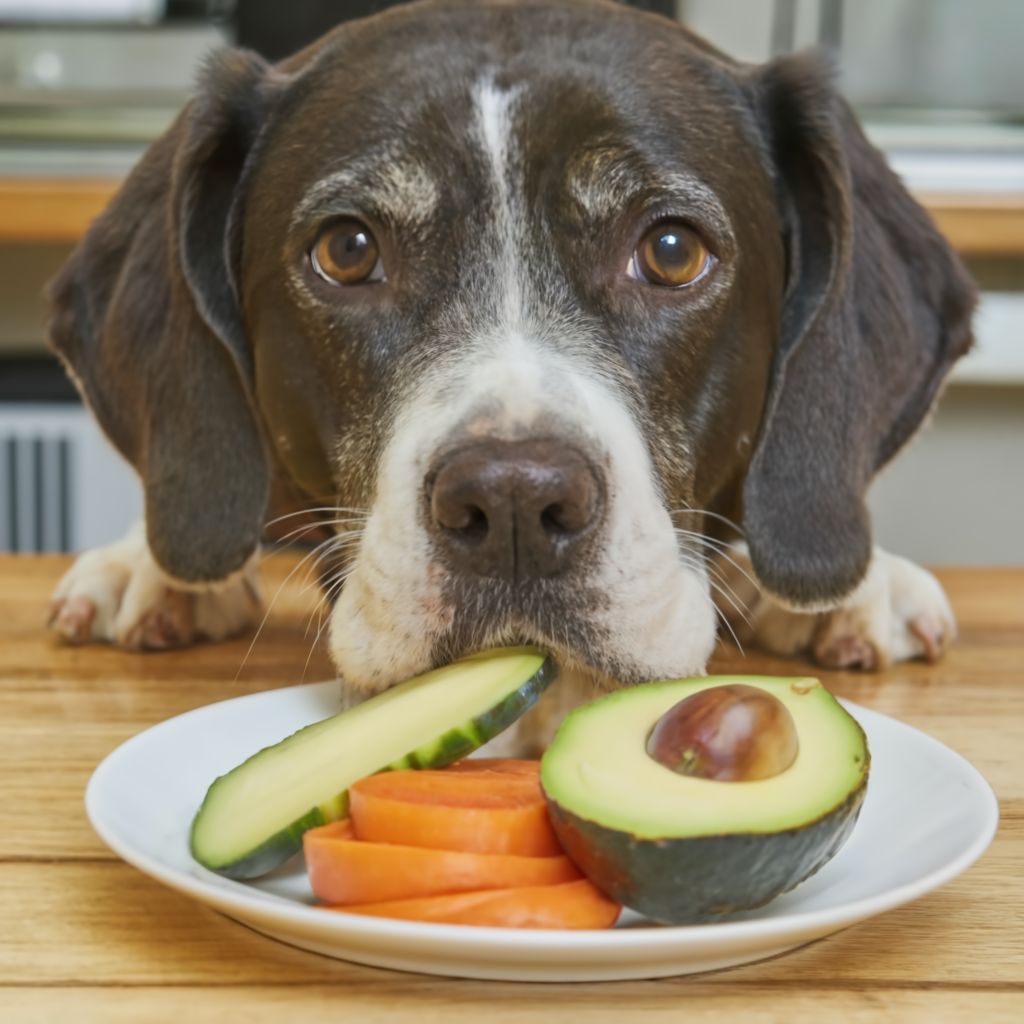Can Dogs Eat Avocado? Read Before You Feed

Can Dogs Eat Avocado? Read Before You Feed
Can dogs have avocado? This is a question that often arouses the curiosity of pet owners who want to find new foods for their furry companions. Avocados are now widely consumed by humans for their flavor and health benefits, but research is needed to determine if they are safe to consume on a dog’s diet. In this article, let’s dive into whether avocado is a safe and healthy addition to your dog’s diet, demystify the mysteries surrounding this creamy fruit, and explore its potential effects on our dogs.
Is avocado safe for dogs to eat?
As a creamy treasure, avocado has won the hearts of many with its rich flavor and nutritional value. But when it comes to dogs, the question remains: is avocado safe for them to eat? While avocados provide a variety of nutrients and healthy fats, they also contain a substance called persin, which can be toxic to dogs in large amounts. A ripe avocado fruit’s persin content is generally considered safe for dogs. However, caution is advised: The pit and skin of the avocado are choking hazards as they may contain higher levels of persin. It is important to understand the risks and benefits of feeding avocado to dogs to ensure the well-being of your furry friend.
Are there any risks or dangers associated with giving avocado to dogs?
While dogs can benefit from moderate intake of avocados, there are also potential dangers and risks associated with giving them. A substance known as persin, which can harm animals like dogs and many types of animals, is the primary concern regarding avocados. Persin is most concentrated in the pit and skin of an avocado, so it’s important to make sure your dog doesn’t ingest these parts, as they can cause gastrointestinal upset, vomiting, or diarrhea. Moreover, the natural fats in avocados may be toxic to some dogs, and they may develop digestive issues or pancreatitis as a result of consumption. For this reason, it is important to feed avocado in small quantities and keep an eye on your dog’s health. As always, talk to your vet before adding avocado to your dog’s diet to make sure it is safe for your dog.
Can dogs have avocado pits or skin?
No, dogs should not eat avocado pits or skin. When consumed, avocado pits pose a risk of choking and can lead to intestinal obstruction that may require surgical intervention. The pit and skin have a higher concentration of persin, which can be toxic to dogs in large amounts. Persintoxicity can cause symptoms such as gastrointestinal disturbances such as vomiting and diarrhea, as well as difficulty breathing and fluid accumulation around the heart and lungs. Before feeding your dog an avocado, ensure that the pit and skin are removed before consuming it, and only offer them moderately ripe flesh. If you suspect that your dog has ingested an avocado pit or skin, contact your veterinarian immediately for instructions.
Can dogs eat guacamole made with avocado?

It is best to avoid giving your dog guacamole made from avocado. While avocado itself may be safe for dogs in small amounts, guacamole often contains ingredients such as onions, garlic, spices, or other additives that may be harmful or toxic to dogs. The ingredients in your pet’s food may result in indigestion, irritation, or worse health issues. Additionally, guacamole can be high in fat and calories, which can cause weight gain or pancreatitis in dogs if consumed in excess. Your dog will be safe and healthier if you give them an occasional, regular serving of fresh, avocado-ripe fruit, and double-check the ingredients before giving your pet human food.
How much avocado can I give my dog?
Your dog’s size, breed, and overall health are all important factors in determining the amount of avocado you can give them. Although consuming small amounts of avocado flesh that is ripe is generally safe for dogs, it is important to limit its consumption. It is recommended to give your dog a small amount of avocado as an occasional treat or add it to their regular diet. Avoid eating excessive amounts of avocado, as it can lead to indigestion or other side effects due to the fruit’s natural fat and persin content. Your veterinarian should be the first to advise on the appropriate avocado size for your dog’s health and dietary requirements.
What are the health benefits of feeding avocado to dogs?
Feeding avocado to dogs in moderation can bring several health benefits. Healthy fats, such as avocados and omega-3 fatty acids, are essential for dogs’ shiny coats and healthy skin. Additionally, avocados provide dogs with essential nutrients such as vitamins E and B6, potassium (vitamin minerals), folate, and fiber. The nutrients are beneficial for the immune system, digestion, and heart health and may have anti-inflammatory effects. Certain pet owners have suggested that avocado may aid in reducing dog hair loss and soothing itchy skin. However, it’s important to eat avocado in moderation and consult your vet before adding it to your dog’s diet to make sure it’s suitable for their specific health needs.
Can dogs eat avocado without any negative effects?

Providing avocado for dogs can be a cause for concern among pet guardians. Most dogs can consume ripe avocado flesh without the pit and skin, and it may provide health benefits if consumed in moderation. Some dogs can tolerate avocados well without sickness, but if they eat too many it can cause digestive problems or become sensitive to its natural fats. Therefore, it is very important to introduce avocado gradually and monitor your dog for possible side effects. As with any new food, it is always best to consult your veterinarian before adding avocado to your dog’s diet to ensure it is suitable for your dog’s individual health needs.
What should I do if my dog eats avocado and shows signs of discomfort or illness?
In case your dog experiences discomfort or illness after consuming an avocado, it’s crucial to take action immediately. Here’s what you can do.
- Monitor for signs: If your dog has been eating avocado, it may be exhibiting symptoms like nausea, vomiting, diarrhea, or abdominal pain.
- Take away avocado: If you have a feeling that your. eating an avocado. due to the dog’s discomfort, do not feed avocado and other new foods until symptoms improve.
- Give water: Make sure your dog has fresh water to stay hydrated, especially if he is vomiting or has diarrhea.
- Consult your veterinarian if you have concerns about dog health or ongoing symptoms. This is especially important unless you are in good physical condition and experiencing severe discomfort. Your dog’s specific requirements may lead them to offer personalized guidance and treatment options.
- Get the Help You Need: Follow up with your doctor, taking any prescribed foods, medications, or other tests to determine the cause of this condition. . your dog’s symptoms.
By using these steps, you can make sure your dog gets the care and attention he needs if he experiences any side effects from eating avocado.
Before introducing any new food to your dog’s diet, it’s a good idea to consult with your veterinarian. Your dog’s health, size, weight, and dietary requirements can be taken into account when seeking advice from them. Additionally, it’s important to be aware of potential choking hazards — unpopped kernels,
